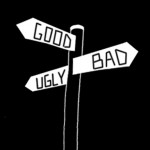 Tips for finding good professional calibrators. The problem is that everyone says that they can do the job. [important]No one will tell you that they are a bad doctor or a bad mechanic. They exist so someone is lying. [/important]
Tips for finding good professional calibrators. The problem is that everyone says that they can do the job. [important]No one will tell you that they are a bad doctor or a bad mechanic. They exist so someone is lying. [/important]
No one will ever just announce to you that they are a bad doctor or a bad mechanic and yet such things exists so someone is either lying or they are just oblivious to the fact. We are all good drivers, after all. So it just makes things harder for you, the consumer, as you will need to do some homework and this article will try to make it much easier to sort out the good calibrators from the bad ones and the mediocre ones.
Here is a list of things to look for and consider when you decide to get your TV professionally calibrated and start to look for someone in your area to provide professional calibration services. It could be an independent or the Best Buy Geek Squad/Connect Pro people or some other permutation.
1. Training – First up, this is definitely important, but not always in the ways people might think. I’m not saying that the professional calibrator has to be THX Video Certified or ISF certified, but they need to have proper training. Note that the term proper training does not have to mean formal training. It is very possible to be self-trained in this field as well especially if you have the enthusiasm and drive to learn it all yourself; it just takes a lot longer and there is more trial and error. I taught myself how to do this stuff before I went to get my ISF papers way back in 2000. I was an enthusiast for 20 years prior to turning professional. Proper training could also mean watching a series of training videos; something that never even existed when I first got into this. I did it the hard way, and I ended up teaching the stuff for THX and ISF.
But in this age of big box stores sending people out to do ISF calibrations with people that have never set foot in an ISF class … it can be pretty bad indeed. And just because someone has their piece of paper, does not mean they know what they are doing. ISF provides minimal real training to their people in their classes and even though THX provides triple the training time, coming out of the class still does not mean a person is immediately ready. There have been some instances (although rare) of attendees just wandering around class doing nothing because they figured they knew it all already. A number of BB guys did just that in one of our THX classes back in 2010. And a person just last year at one of the THX classes left promptly at the end of each day skipping out on all the after hours practice time and then proclaiming to others that both the ISF and THX provided the same amount of practice time.
Is a calibrator’s knowledge up to snuff? Have them go take my Calibration Challenge. 45 questions that a seasoned calibrator should have no problems with. Set the bar at 80% or better for them. If they score lower, you need to be careful. (An ISF guy from France took this challenge and he scored 100% on it despite English not being his first language, so I know there is no problem with the wording of the quiz.) And then again, a so called seasoned calibration veteran scored 39% on the quiz and makes me seriously question his competence. You can see how they do on the leaderboard after they complete the quiz and enter their name and email. If not, just ask me and I can pass along any score as long as the results are entered into the system correctly. If they refuse to take the quiz, be even more careful.
2. Equipment – Hardware matters. But just like buying a professional grade camera does not make you shoot pictures like the pros, good gear in the hands of idiots does not mean very much at all. That said, a professional photographer can so some amazing things with even a point and shoot camera, but give them a disposable camera and that might even test them. That said, there is a minimum level of calibration hardware that you should look for and expect from your calibrator.
First thing is to make sure they have a spectrometer of some kind. It can be an entry level piece like the X-Rite ColorMunki Photo to an X-Rite i1 Pro 2 or 1
to the more Cadillac pieces like the Jeti 1211 units or the Minolta CS200 or the Photo Research 655 or 670 units. If they use these with a colorimeter like a C6 or X-Rite i1Display Pro
or Hubble or Klein K10, it is all good. But if you see them pull out only a colorimeter like the Chroma 5 or Hubble or C6 or Klein or D3, then there is a problem. If a colorimeter is used, it must be properly profiled to a spectrometer on your TV. None of this calibration table stuff.
And even if they don’t profile the meter, it is still acceptable so long as they demonstrate to you that the end result is similar to that of a spectrometer. If they don’t at least demonstrate this, then they are trying to pull a fast one on you. You can’t just take their word on this because it has been shown too many times that colorimeters can be very wrong. Without profiling, a budget spectro device like the $400 X-Rite ColorMunki Photo has been shown time and time again to be more accurate than a $6000 Klein K-10 colorimeter that only relies on calibration tables.
Something is terribly wrong if they can’t afford a $400 spectro.
3. Experience – Experience matters, but people have to learn how to do this stuff somewhere. This is where testimonials and referrals come in. It really isn’t necessary that they have exact experience in your particular TV. The major brands of TVs really haven’t changed all that much in the past five years when it comes to the calibration part. Sure they got thinner and added more widgets, but the calibration part stayed the same.
You might like to think that your TV is special, but it really isn’t. It is not unlike learning the fundamentals of doing an oil change on a car. You know there is a filter, oil and a drain plug somewhere under the car. With this basic knowledge, you can do pretty much every car out there. It’s really like that for TV calibration too. Of course no one likes to hear that they are not so special after all. If the controls work correctly on a TV, then even novice calibrators should not have an issue.
The experience counts when thing don’t work as expected and some measure of compromise has to be implemented. Of course experience also counts when you ask the calibrator a question about what he might be doing. You’d expect some reasonable answer versus a shrug of the shoulder. That really instills confidence in what he is doing.
4. People skills – Now this can be a real problem because as a client, you might actually be curious about what the calibrator is doing and why he makes the choices that he makes. If you ask, things go much better and are far more enjoyable when you are included as part of the session. Even the best calibrated image can become problematic if the calibrator cannot get his client to understand some of the basic concepts in the calibration process. Correct answers don’t mean much if the client doesn’t understand the answer or why it is so. You can bet that if a professional calibrator talks to you about education, he will have pretty decent people skills.
5. References – Don’t forget to ask for some if the person is a real unknown to you. But realize as well that references don’t mean very much if it comes from people that don’t have an idea what a good image actually is or a way to compare and contrast the service they were provided. Consider that there are many people who have used the calibration services from the big box stores and will tell you that they are pleased with the results. However, when you get a chance to scrutinize this same work that resulted in a “pleasing result,” you find out item after item that was actually done incorrectly or omitted completely. Once you relay this information to the client, his opinion of the original calibration service evolves rather quickly from being happy to now being angry. Chalk it down to the following statement. “You don’t know what you don’t know.”
Out of all this, I am reminded of a story I heard about an industry fellow of some influence that owned websites and internet HT publications (amongst many things, no doubt) who would often like to drop names about who “calibrated” his displays. It soon became apparent that the name dropping of those major industry calibrators were more important than the quality of the work they actually provided this person. But because he didn’t know any better, what these industry calibrators showed him about calibration became his only reference for what professional calibration was actually about.
And then one day he found out about what happens when a real calibrator that cares about what he is doing actually did. The big name industry calibrators had essentially pulled one over on this guy either intentionally or they were being lazy. They just used a test disc and didn’t even bother with any instrumentation and they passed that off as real calibration. Let’s just say that this fellow was mightily ticked off when he found out what he was really missing. And here was a case of “you don’t know what you don’t know.”
So armed with these tips, it should be a bit easier to screen potential calibrators and figure out who actually is up to snuff and who the pretenders are. You are back in the drivers seat again and you have that nifty quiz of a tool at your disposal. I’m not asking you to be able to pass this quiz with flying colors, but you are certainly welcome to look at the questions that will be asked. [important] And I am not like people in some industries that refuse to talk objectively or critically about their industry for fear of making the entire industry look bad, regardless if the customer is the one made to suffer. [/important]

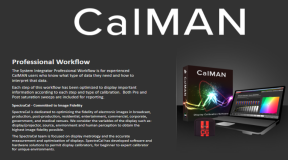
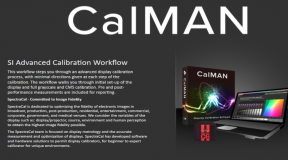
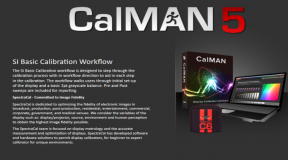
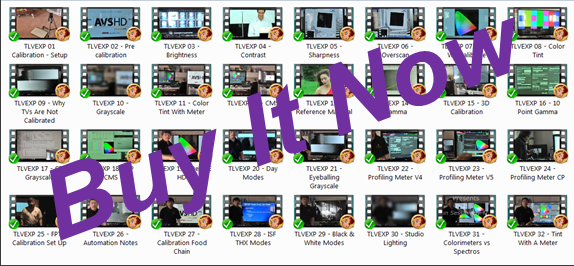
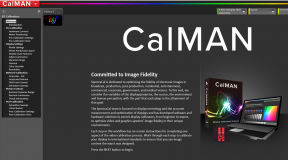
4 Comments
HT_GUY
(June 5, 2013 - 11:03 am)Regarding the equipment portion of the article, when you say the calibrator demonstrates that the end result is comparable to that of a spectrometer, what exactly do you mean?
Calibrate with the colorimeter and then compare post-cal readings between the colorimeter and spectrometer?
I ask because some calibrators choose not to use their spectros and just use the colorimeter instead stating that for that display type/technology there is no need to profile and a calibration table will do fine (such as with CCFL LCD displays).
tlvexp
(June 5, 2013 - 2:45 pm)If a calibrator takes out his klein first, let’s say. Does the calibration with that because the klein is fast. Once he is finished with the calibration, he takes out his i1 pro/colormunki spectro, and he takes some spot check readings with it … 80% white … 30% gray … red/green/blue … and if these results are within 1 dE of his Klein, then you can rest easy … the calibration tables worked out fine and you have verification of it. Verification is a must here … and you can’t take the Calibrator’s word on this stuff. Verification takes another 10 minutes at most. Why is he in a hurry to leave? Show me the money.
HT_GUY
(June 5, 2013 - 3:09 pm)Good point, in this case a measurement is worth a 1000 words. I imagine even if the colorimeter was profiled, a spot check at some point would verify the profile.
tlvexp
(June 5, 2013 - 3:45 pm)Since I have seen the occasional profile fail on a Klein K10 … for instance, I know I would do a double check right after profiling … so as to avoid redoing it at the end if I found out then that the profile was bad. Best to find out right away, then having to backtrack … then you saved all that time for what?